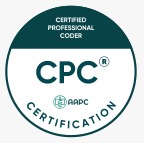Navigating the complexities of today’s healthcare industry is more challenging than ever. As governmental regulations evolve, insurance payer policies shift, and patient expectations rise, providers are finding it increasingly difficult to manage their revenue cycle efficiently. This has paved the way for third-party medical billing services, which offer a strategic approach to optimizing revenue cycle management (RCM) and driving sustainable revenue growth.
Let’s explore how outsourcing medical billing to third-party experts can enhance practice operations, boost profitability, and allow providers to focus more on patient care, with concrete insights into why this approach is essential in today’s healthcare environment.
The Evolving Landscape Cost Challenges
Healthcare providers, from large hospitals to small independent practitioners, are grappling with several revenue cycle management challenges. The introduction of high-deductible health plans (HDHPs) has increased the financial responsibility of patients, and the result has been a rise in bad debt. When patients struggle to meet these higher out-of-pocket costs, providers are often left dealing with delayed or incomplete payments, which disrupt cash flow and financial stability.
In addition to patient payment challenges, healthcare practices must keep up with a maze of regulatory changes and insurance payer policies. For example, the introduction of the ICD-10 coding system dramatically increased the number of codes, making accurate medical billing and coding far more complex. The constant need to adapt to these changes requires significant time, resources, and expertise.
Third-Party Medical Billing Driving Revenue Growth
Third-party medical billing services address these challenges by providing specialized expertise, state-of-the-art technology, and proactive management to streamline RCM processes. By outsourcing billing functions, healthcare providers gain access to a team of dedicated professionals who are experts in coding, billing, and accounts receivable management. Here’s how third-party medical billing services can significantly drive revenue growth:
1. Enhanced Coding Accuracy
Medical coding is one of the most intricate aspects of revenue cycle management, particularly in specialized fields like oncology or cardiology. Each treatment plan can involve multiple therapies, procedures, and drugs, all of which require precise and accurate coding to ensure proper reimbursement. A minor error in coding can lead to denied claims or underpayments.
Third-party billing providers employ highly trained and certified medical coders who are well-versed in the latest coding updates, including ICD-10, CPT, and HCPCS codes. These experts regularly participate in ongoing education to stay updated on ever-changing coding regulations, payer requirements, and compliance mandates. This level of expertise dramatically reduces the risk of coding errors and ensures that claims are submitted correctly the first time, maximizing reimbursement and reducing the number of denied claims.
2. Streamlined Billing Processes
Efficient billing is more than just coding—it’s about managing the entire process, from charge entry and claim submission to payment posting and accounts receivable follow-up. Practices often struggle with bottlenecks due to limited staffing, workload fluctuations, or inefficient billing systems. These delays can slow down claims processing, disrupt cash flow, and ultimately lead to revenue loss.
Third-party billing companies offer scalable solutions that can handle varying workloads and ensure that billing processes run smoothly and efficiently. By leveraging automation and streamlined workflows, third-party providers expedite claim submission and payment posting, leading to faster reimbursement cycles. This not only improves cash flow but also ensures that revenue continues to flow consistently, even during peak times.
3. Regular Audits and Compliance
Staying compliant with ever-evolving healthcare regulations is crucial for avoiding penalties, fines, and costly legal disputes. Routine audits are an essential part of ensuring compliance, identifying and correcting errors before they escalate into significant revenue losses.
Third-party medical billing services conduct regular audits of claims, coding, and documentation to ensure compliance with payer contracts and government regulations such as HIPAA. These proactive audits help identify potential issues, allowing providers to rectify mistakes early and avoid costly denials or audits. Moreover, audits help optimize the revenue cycle by pinpointing areas for improvement, such as identifying undercoded services or missed revenue opportunities.
4. Improved Documentation and Revenue Integrity
Documentation is at the heart of accurate billing. Incomplete or inaccurate clinical documentation can result in denied claims, delayed payments, and even legal risks. However, documenting every patient interaction, procedure, and diagnosis with accuracy is a time-consuming task that often overwhelms healthcare providers.
Third-party billing companies play a critical role in improving clinical documentation by providing support in developing thorough, precise records. Their teams work closely with healthcare providers to ensure that all relevant information is captured, properly coded, and aligned with payer requirements. In many cases, these companies also provide ongoing training to healthcare staff on best practices for documentation and compliance, ensuring continuous improvement in documentation quality. The result? Fewer errors, faster claims processing, and optimized reimbursement.
5. Leveraging Advanced Billing Technology
Healthcare providers are increasingly turning to technology to streamline administrative processes, and third-party billing providers are leading the charge with cutting-edge solutions. From AI-driven coding tools to sophisticated RCM platforms, third-party providers use advanced technologies to reduce manual errors, increase productivity, and shorten the reimbursement cycle.
For example, machine learning algorithms can assist in identifying coding patterns, flagging potential errors, and predicting claim outcomes. Automated billing software can track claims in real-time, allowing providers to quickly address denials or rejections before they become significant issues. By leveraging these technologies, third-party providers enhance the efficiency of the revenue cycle, ensuring faster, more accurate payments while minimizing administrative burden.
Benefits of Outsourcing Medical Billing to Third-Party Providers
Partnering with a third-party medical billing company provides several tangible benefits to healthcare providers. Some of the most significant advantages include:
Increased Revenue
Accurate coding and efficient billing processes result in higher reimbursement rates and fewer denied claims. Third-party providers focus on ensuring that every service rendered is billed appropriately, maximizing the revenue potential of each patient encounter.
Cost Savings
Maintaining an in-house billing department can be expensive, especially when you factor in staffing, training, and technology costs. Outsourcing these functions to a third-party provider eliminates the need for in-house billing staff and reduces overhead costs related to billing software, training, and compliance. These cost savings can be redirected toward improving patient care or expanding practice operations.
Focus on Patient Care
Administrative tasks such as billing and coding can distract providers from what matters most—caring for patients. By outsourcing these functions to experts, healthcare providers can dedicate more time to patient care, which improves patient satisfaction and retention. Happier patients are more likely to stay loyal to their providers and recommend them to others, leading to increased revenue and practice growth.
Data-Driven Insights
Third-party medical billing providers often offer detailed reporting and analytics, giving healthcare practices valuable insights into their revenue performance. By analyzing trends in claims, denials, and reimbursements, providers can identify areas for improvement and implement targeted strategies to optimize their revenue cycle further. These data-driven insights help practices stay competitive and responsive to changes in the healthcare landscape.
Why Choose MBS360 as Your Third-Party Billing Partner?
At MBS360, we understand the intricacies of medical billing and the importance of maximizing reimbursement while minimizing administrative burdens. Our team of expert billing and coding specialists is committed to helping healthcare providers optimize their revenue cycle management processes, ensuring that claims are submitted accurately and payments are received promptly.
We offer a comprehensive range of third-party medical billing services, including coding, claims submission, payment posting, and accounts receivable management. By partnering with us, you gain access to advanced billing technology, regular audits, and detailed reporting, all designed to improve your practice’s financial health.
Conclusion
In today’s healthcare environment, third-party medical billing services offer a strategic solution for overcoming the challenges of revenue cycle management. By leveraging specialized expertise, cutting-edge technology, and proactive management, healthcare providers can enhance their revenue streams, reduce operational costs, and improve patient care.
Partnering with a trusted third-party provider like MBS360 ensures that your practice remains financially healthy, compliant with industry regulations, and focused on delivering the best possible patient care. In an era where RCM challenges continue to grow, third-party billing is not just an option—it’s a necessity for sustained success and growth.








